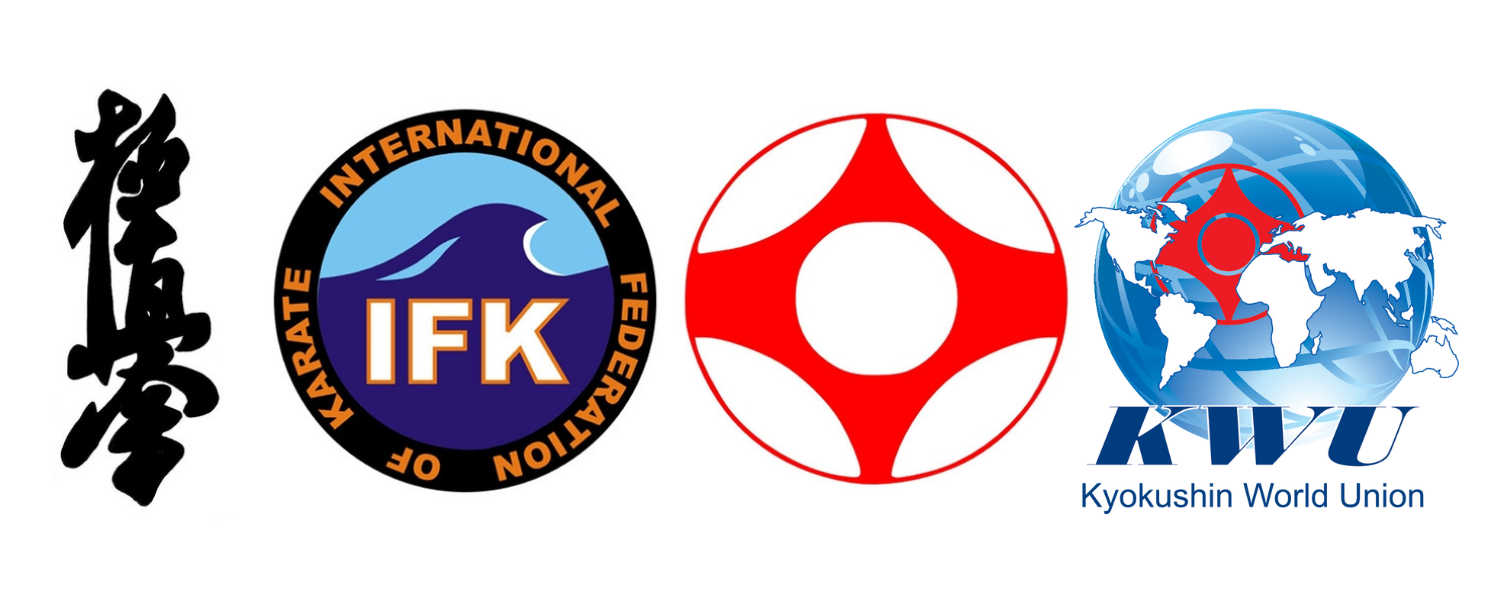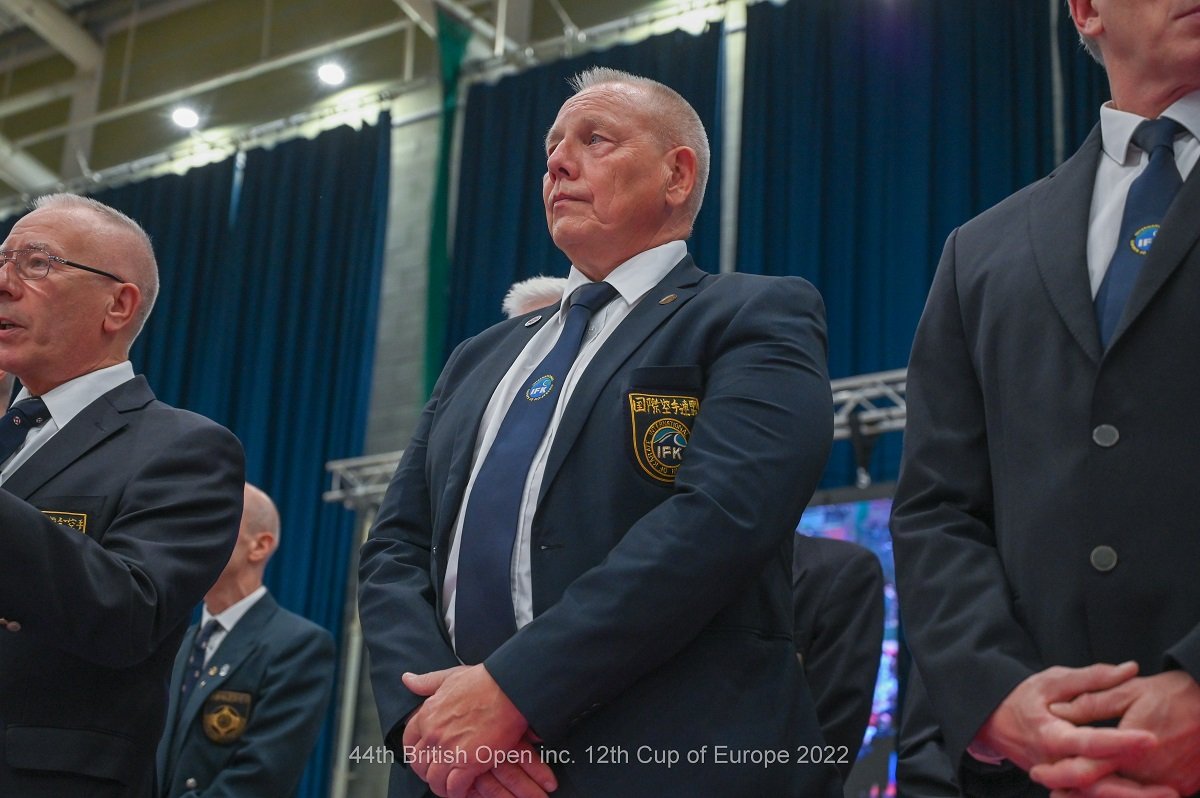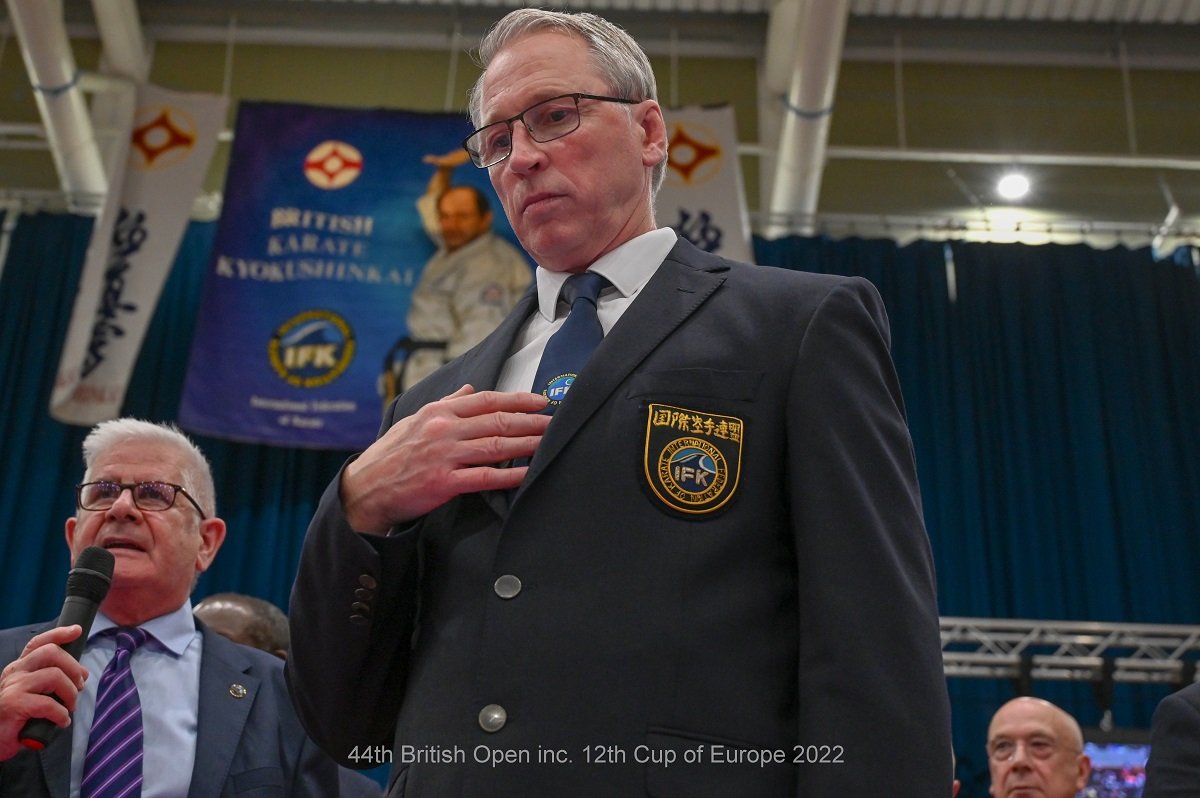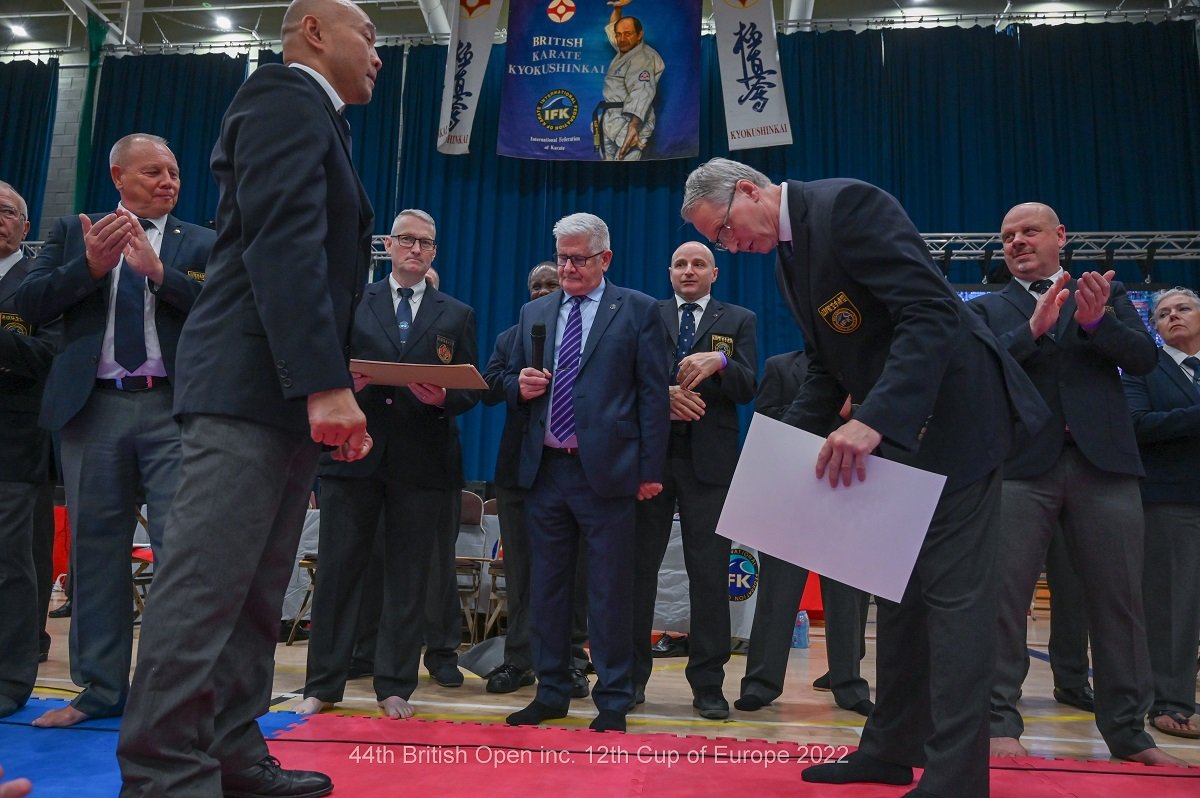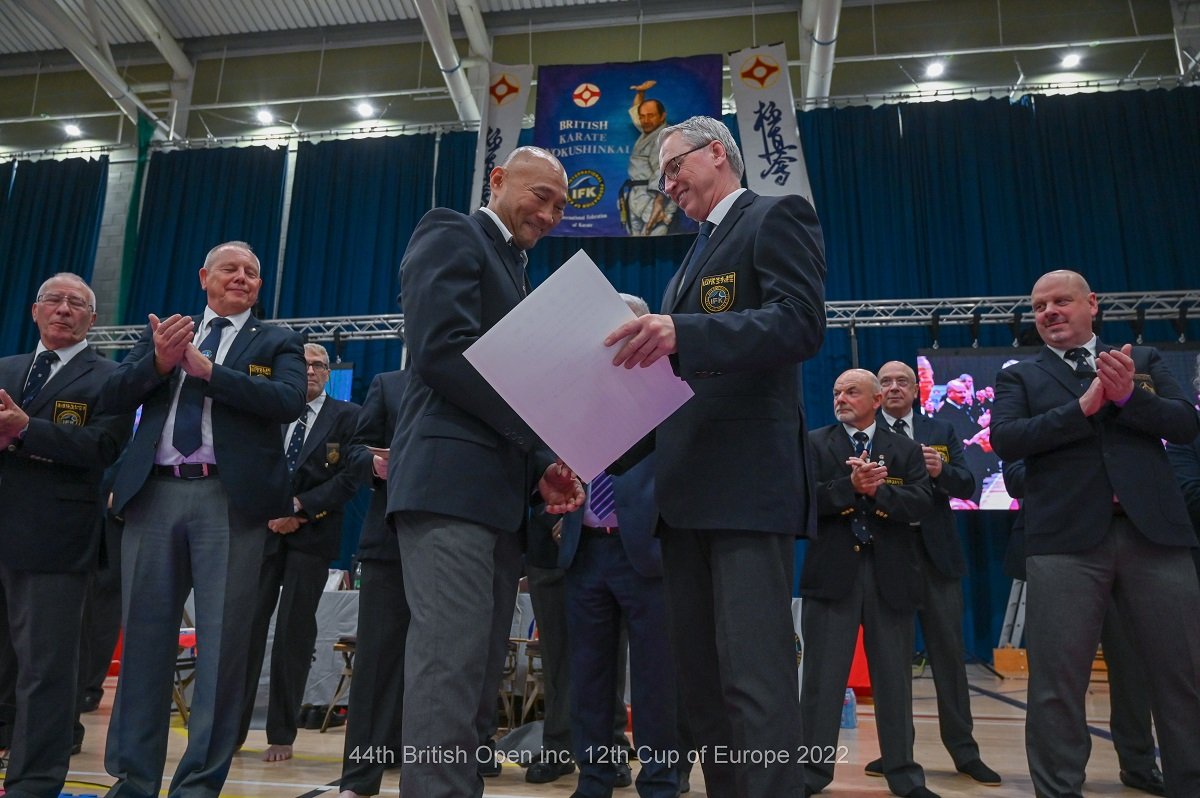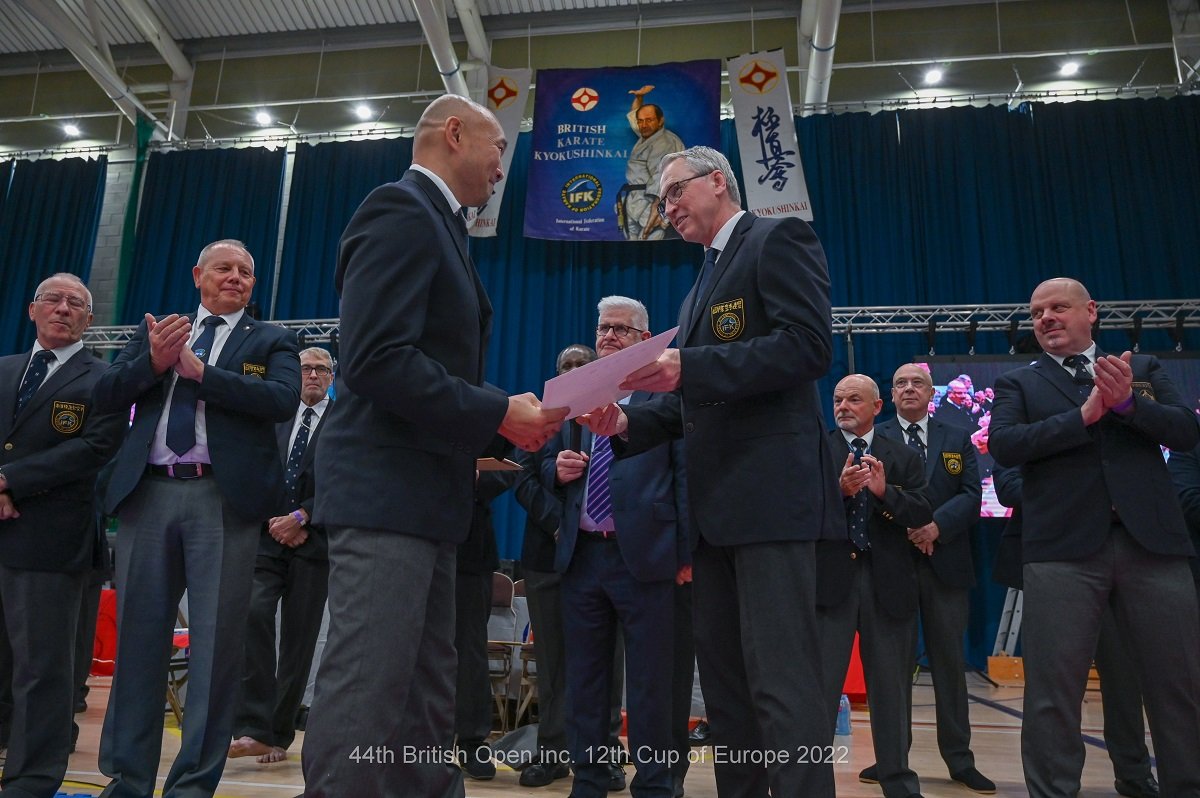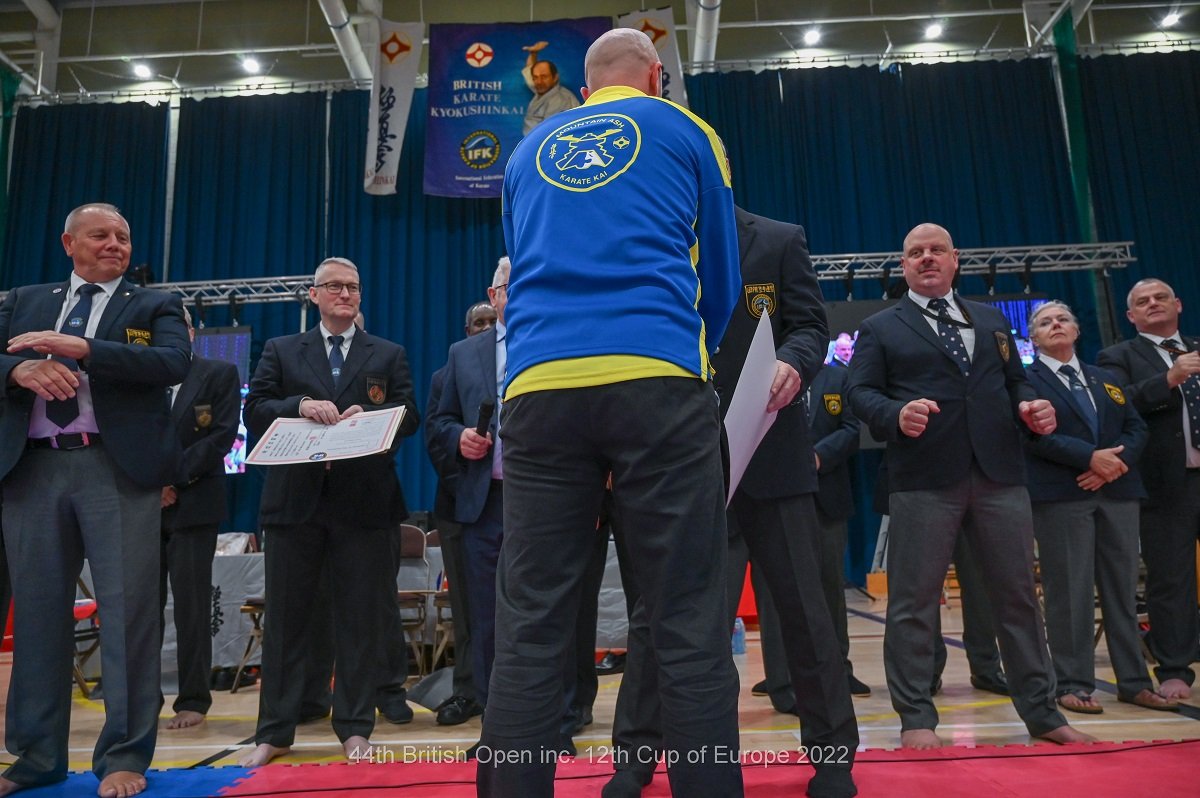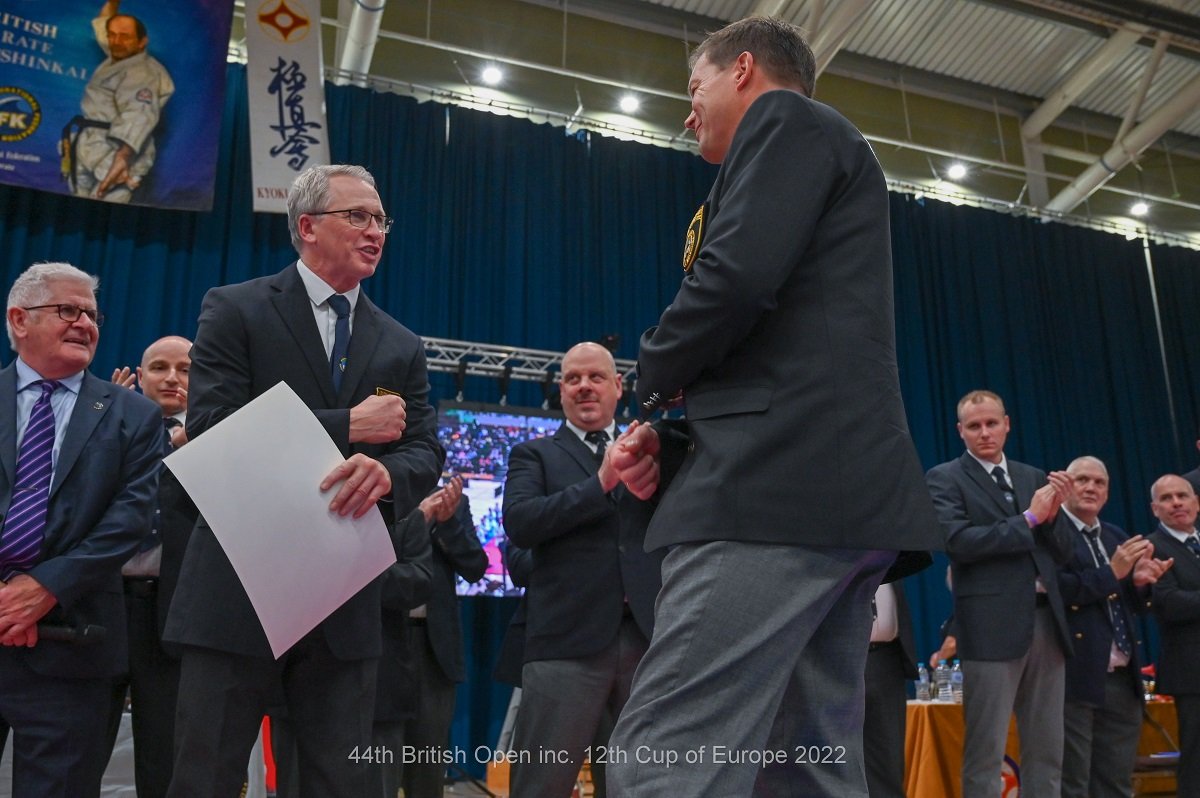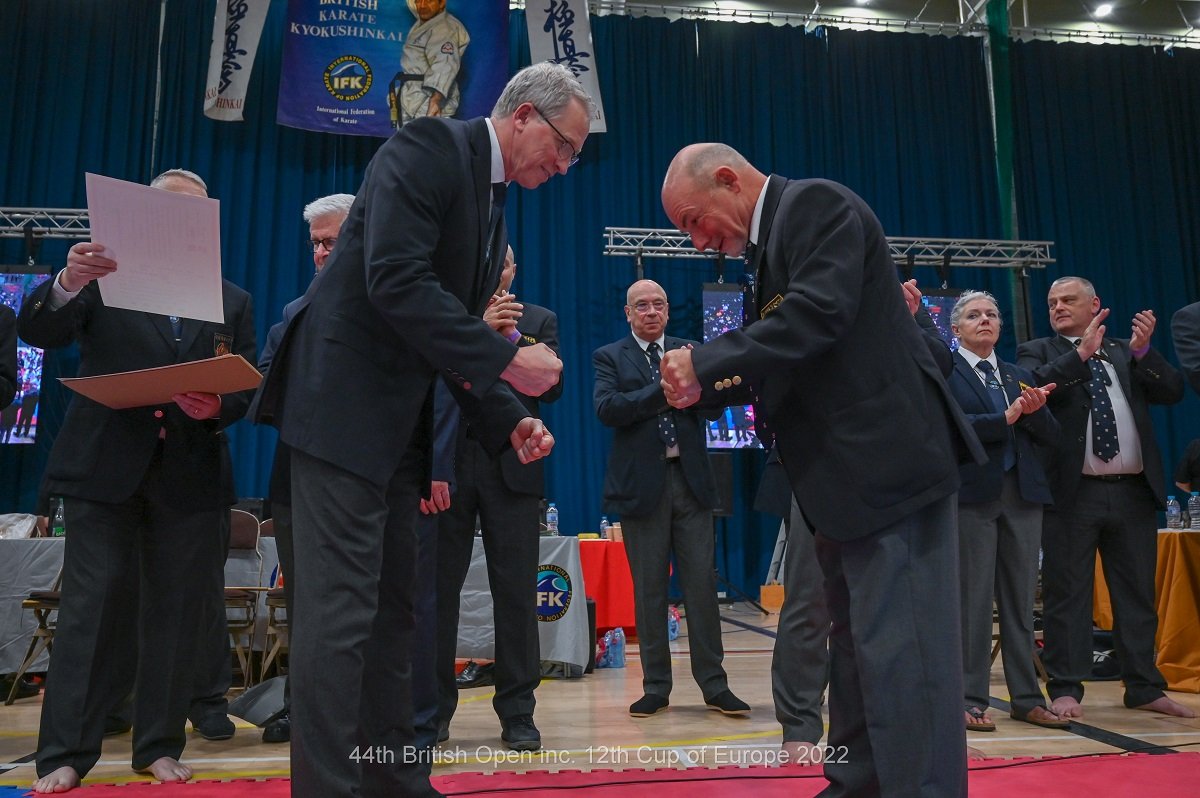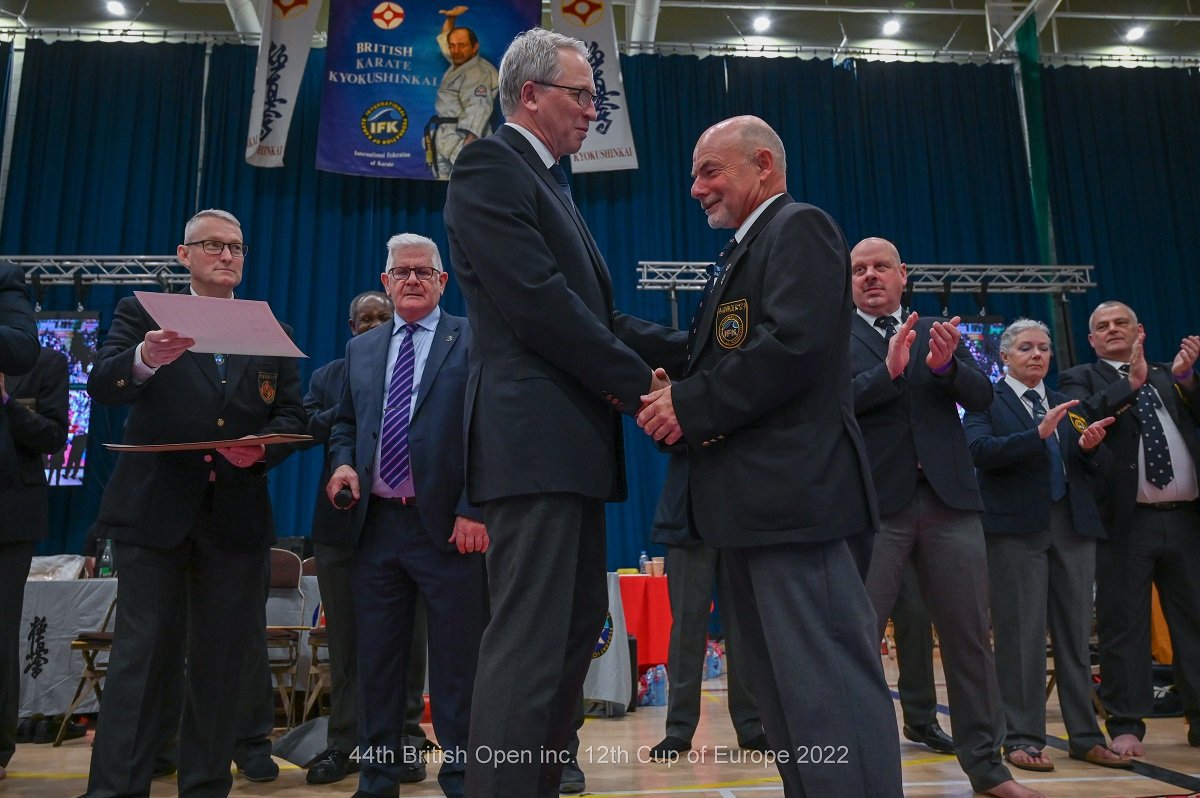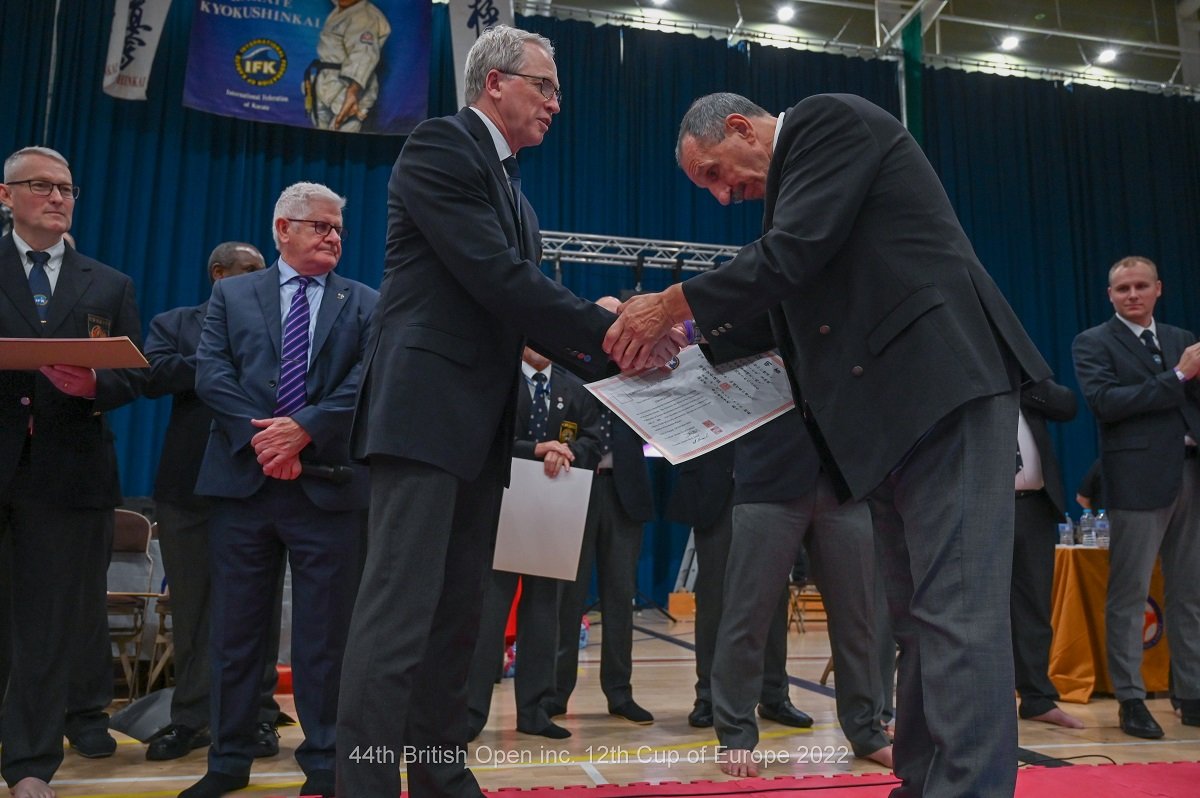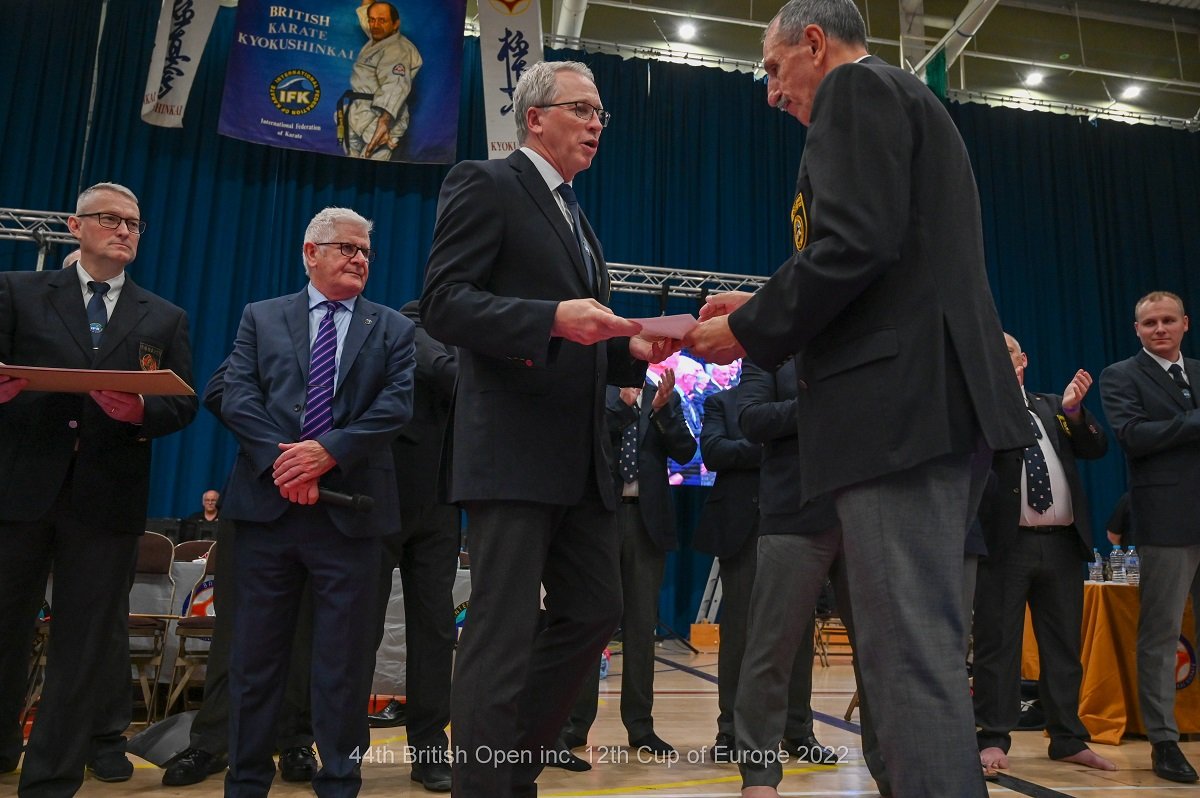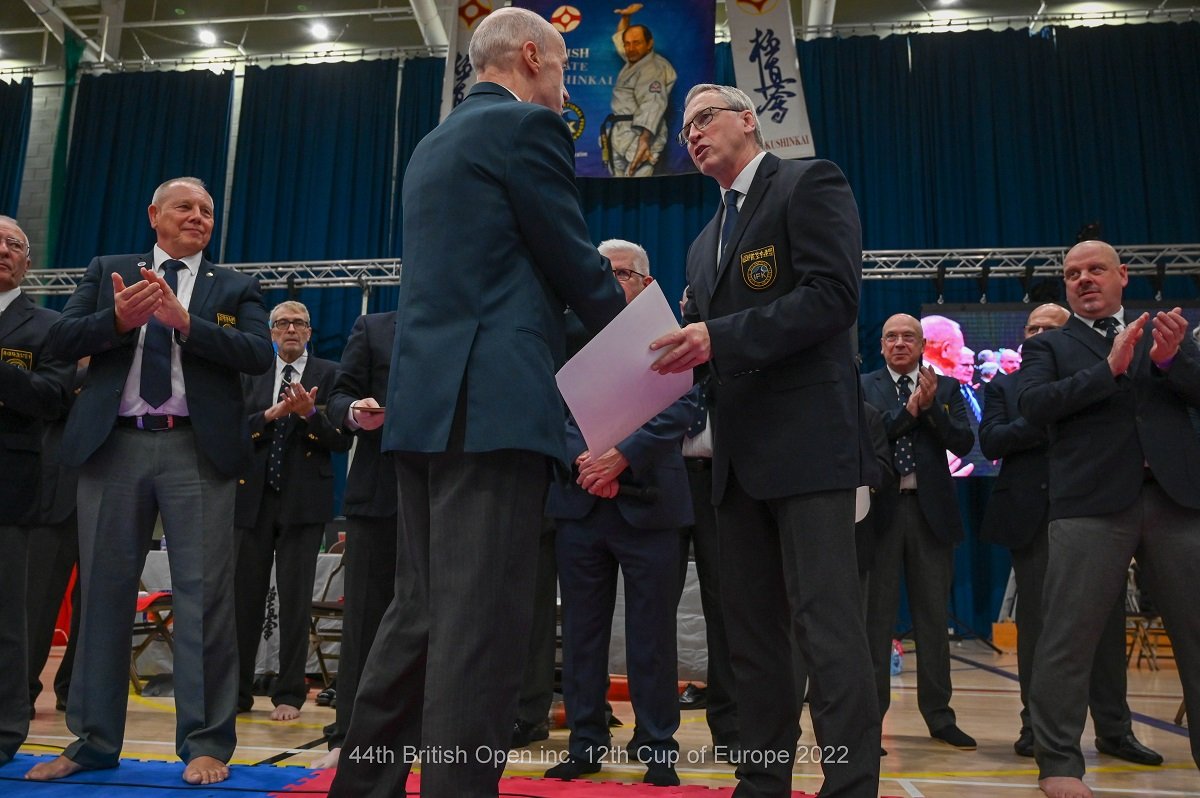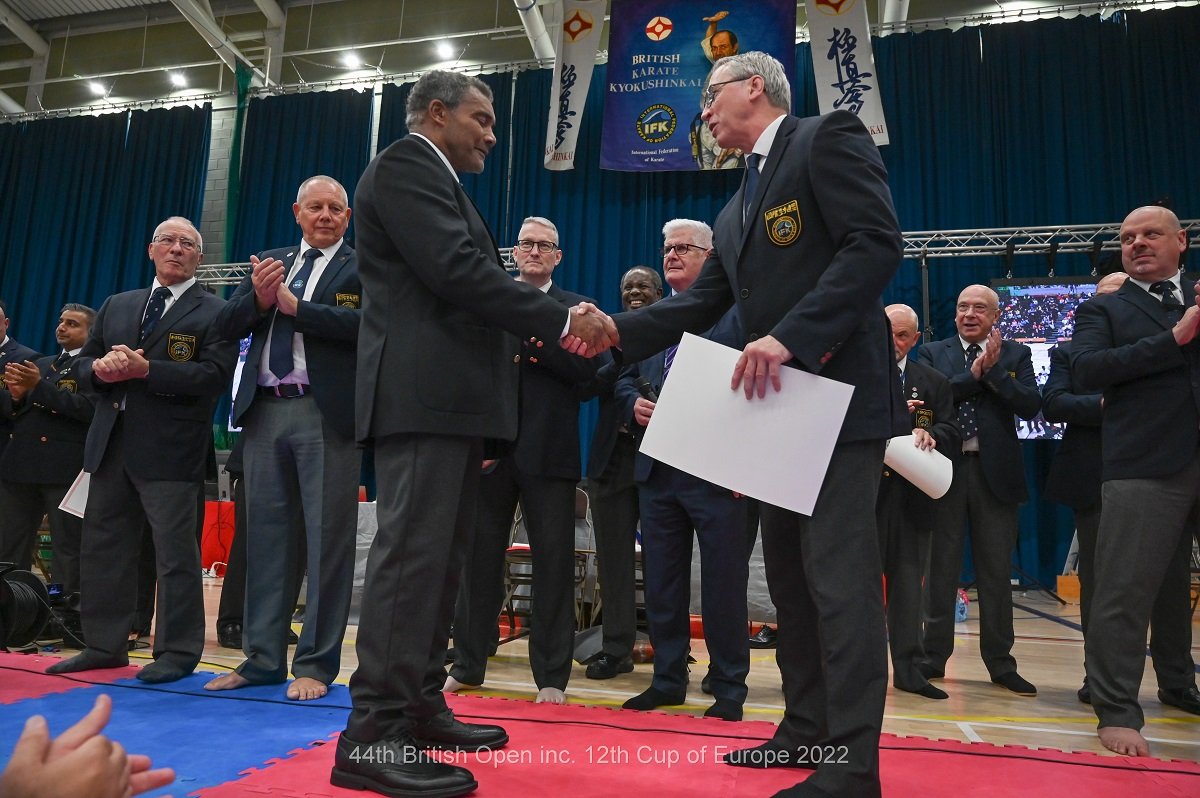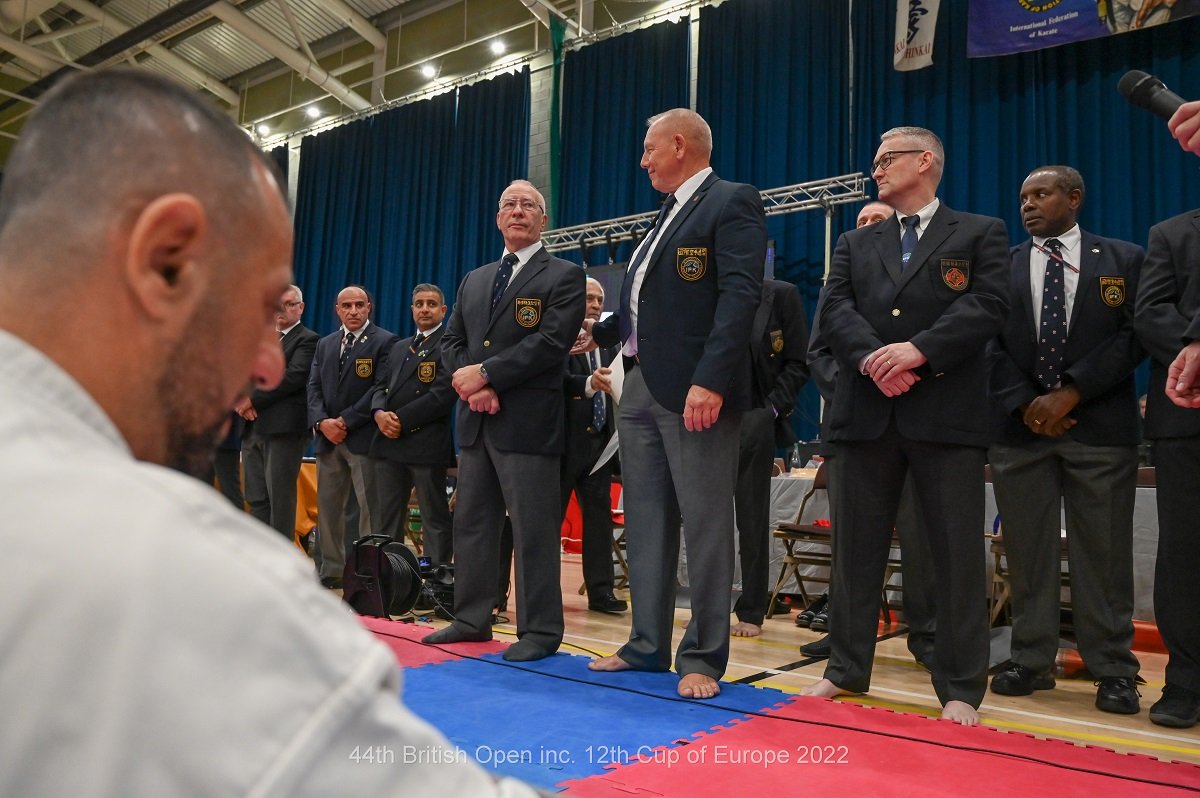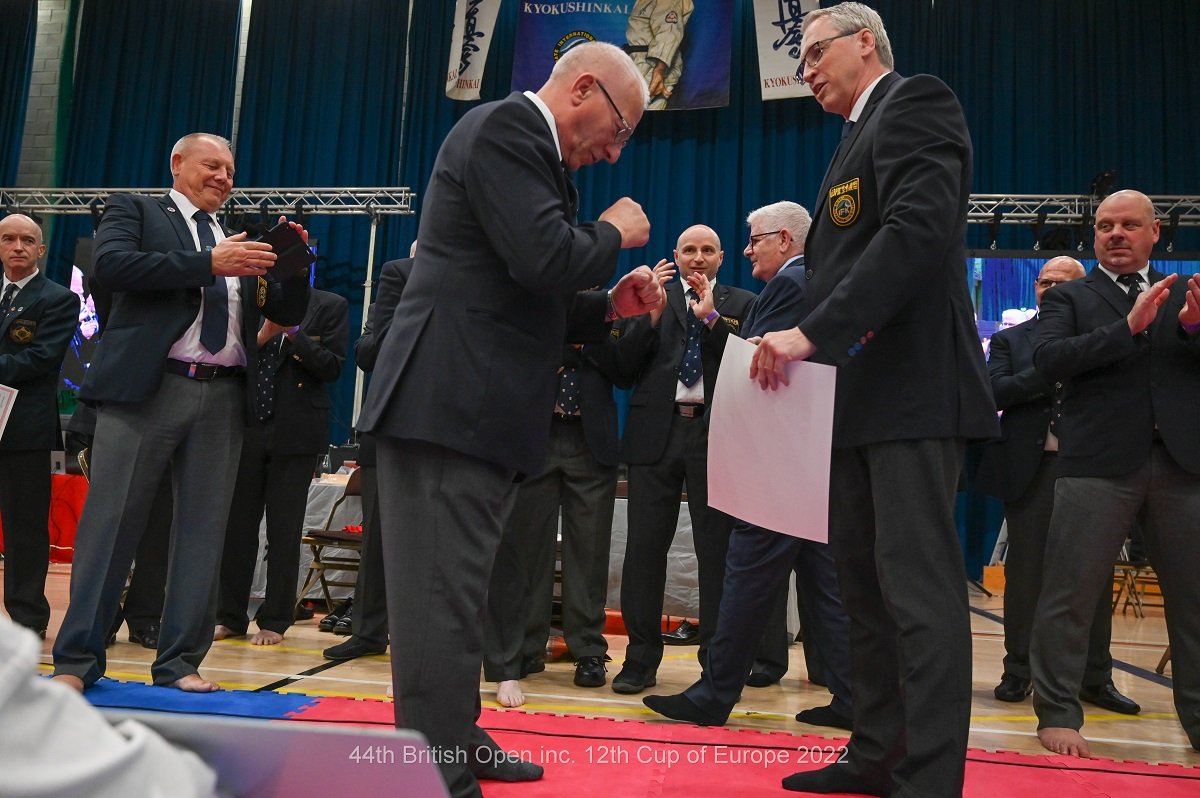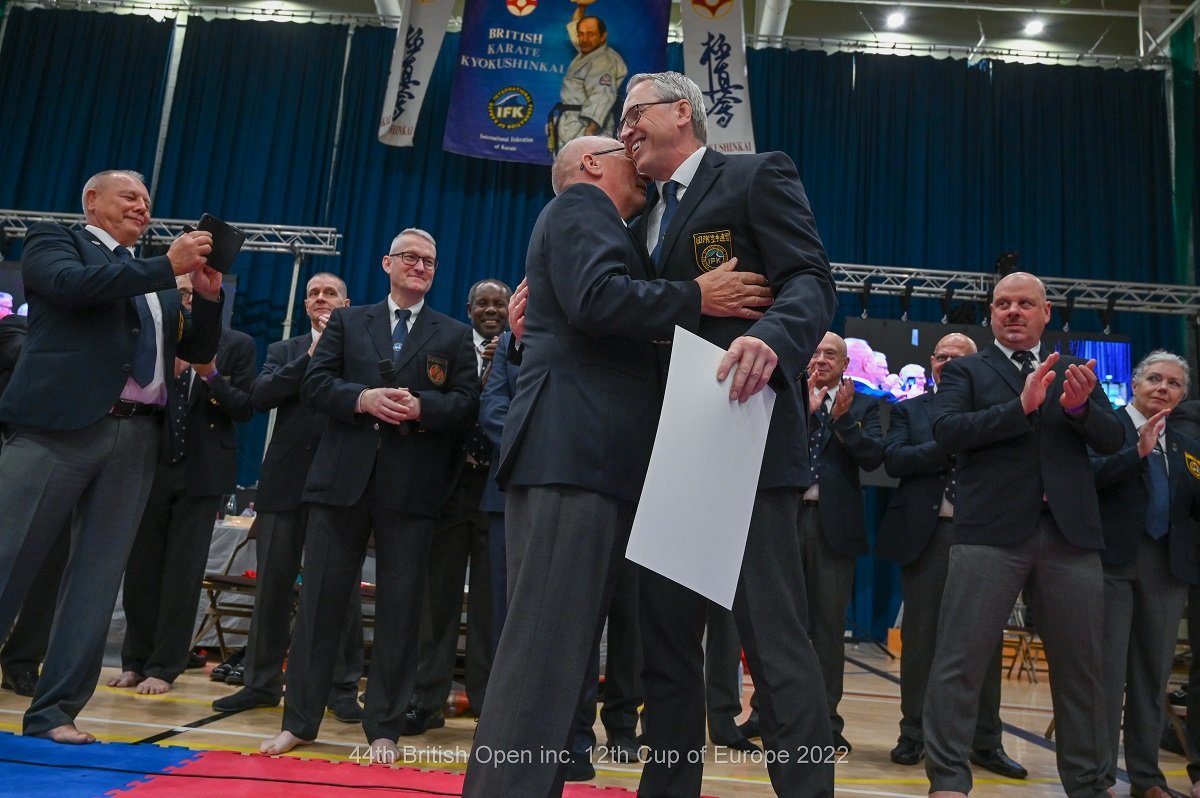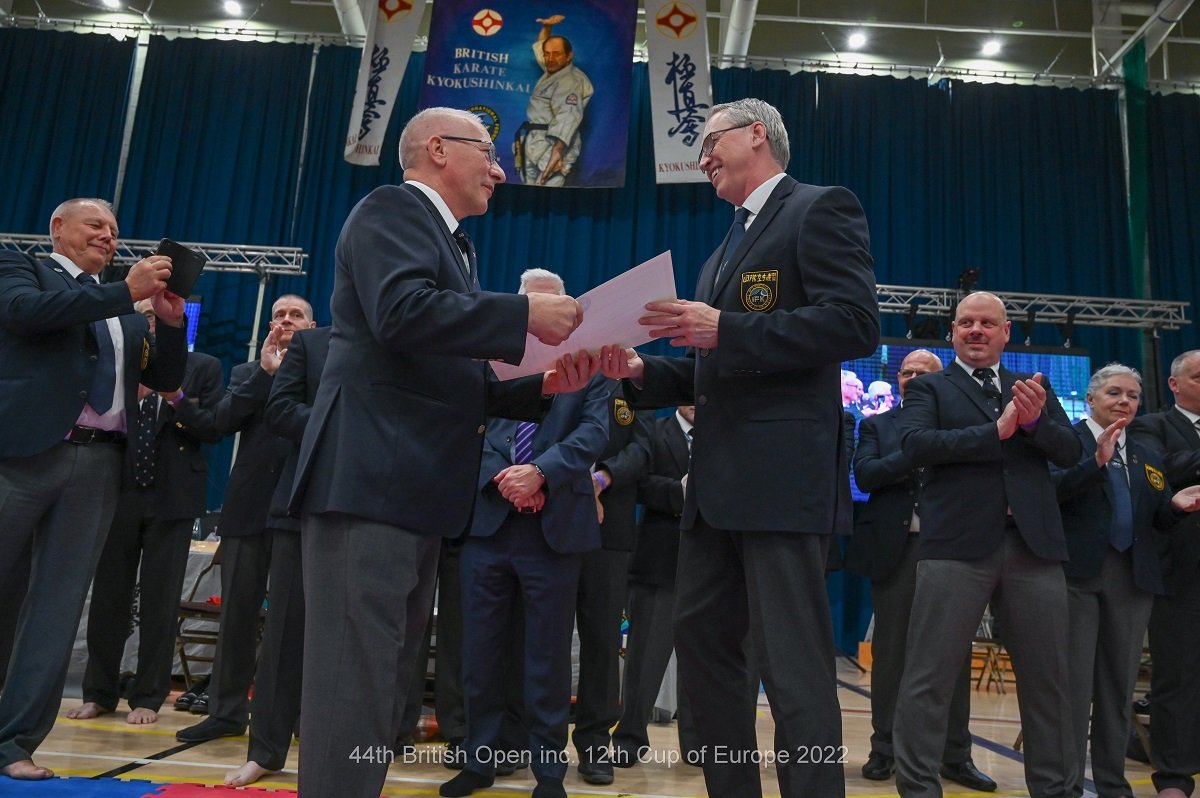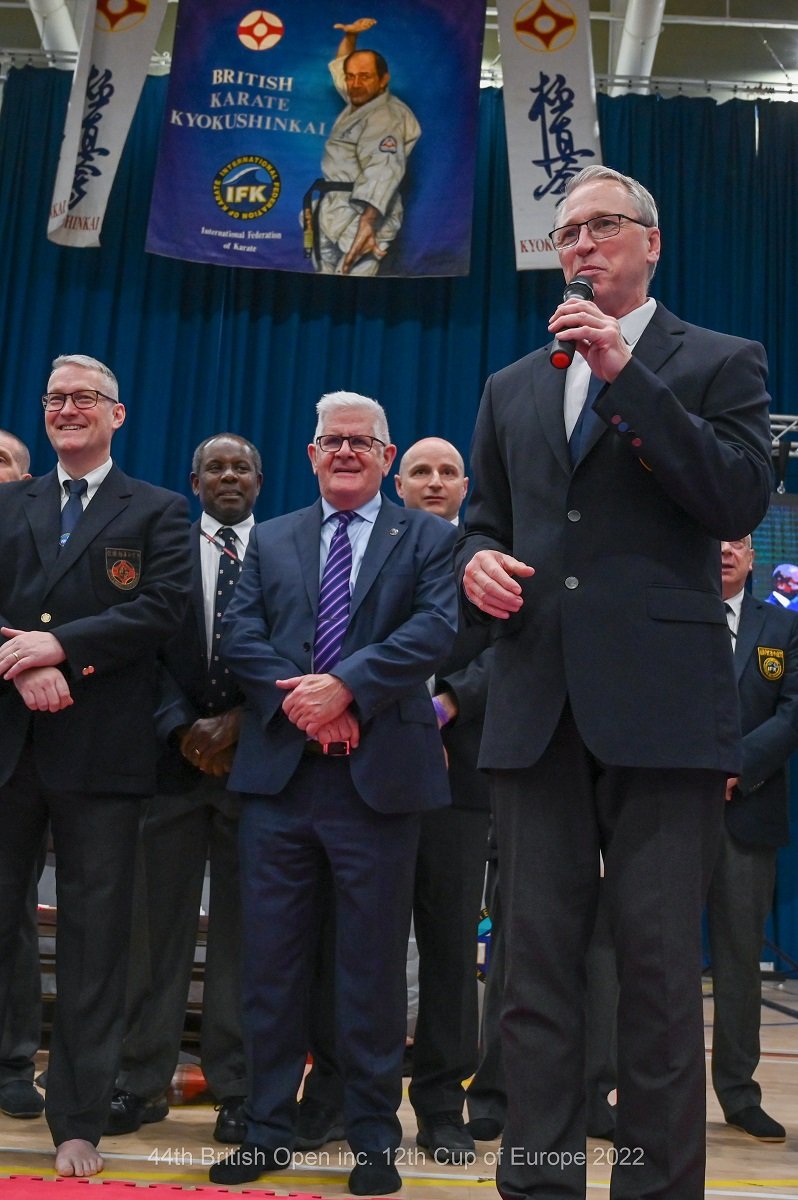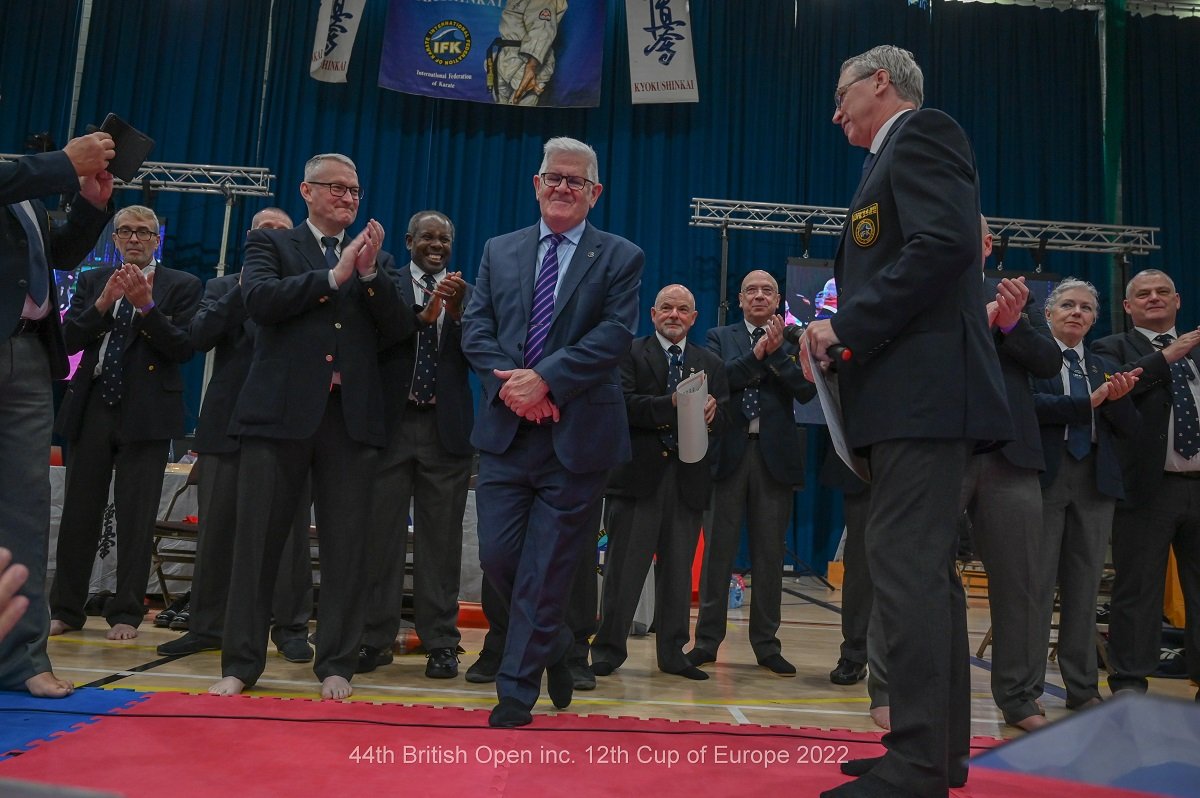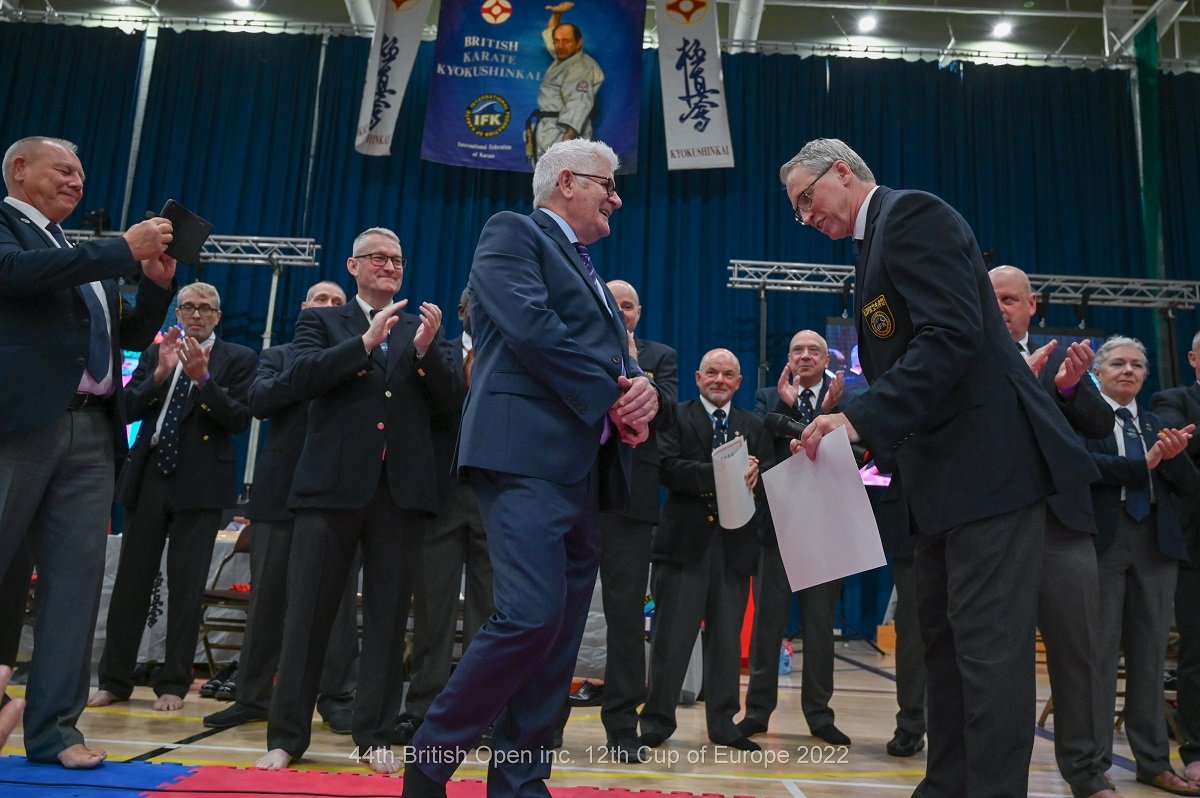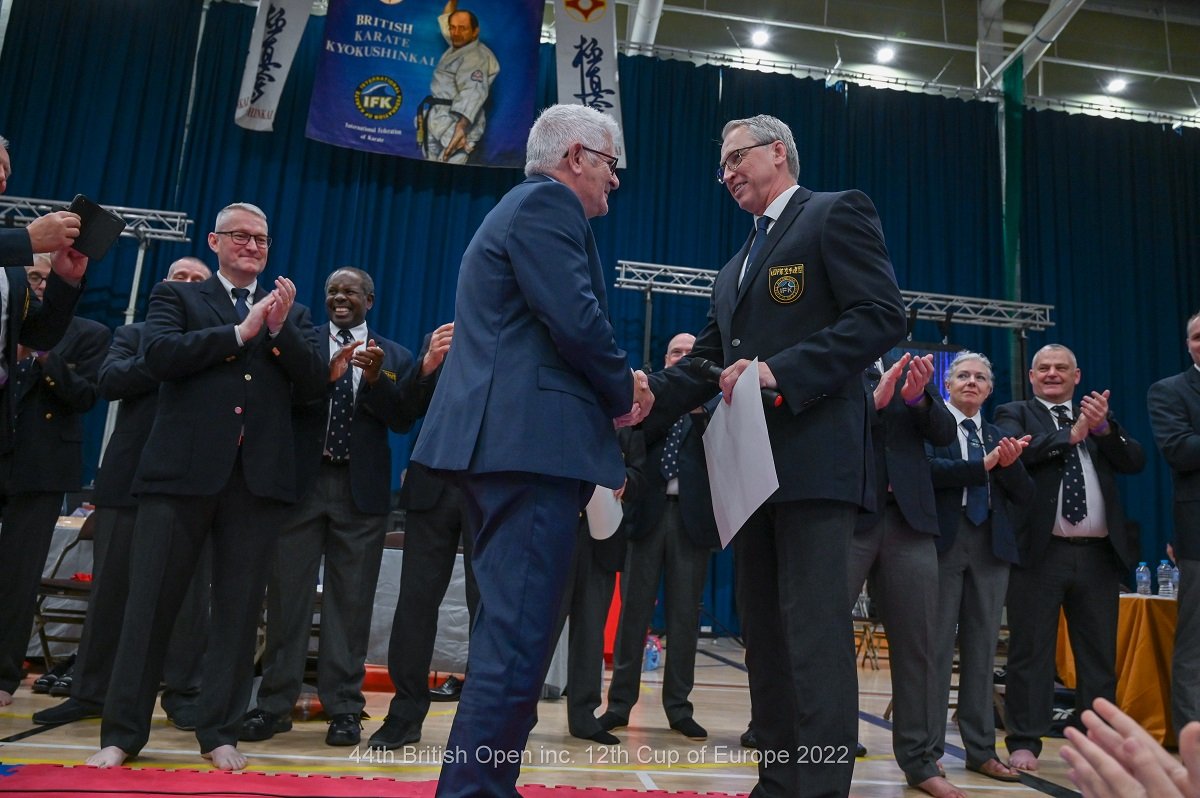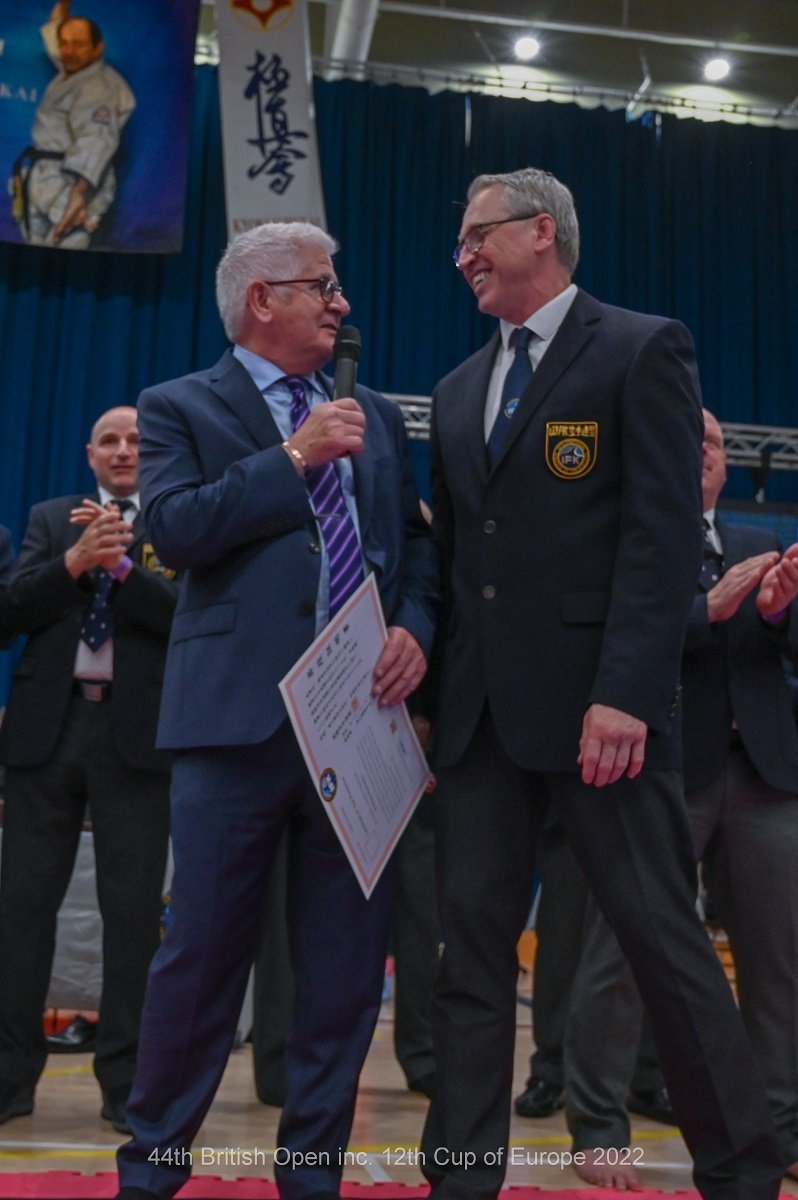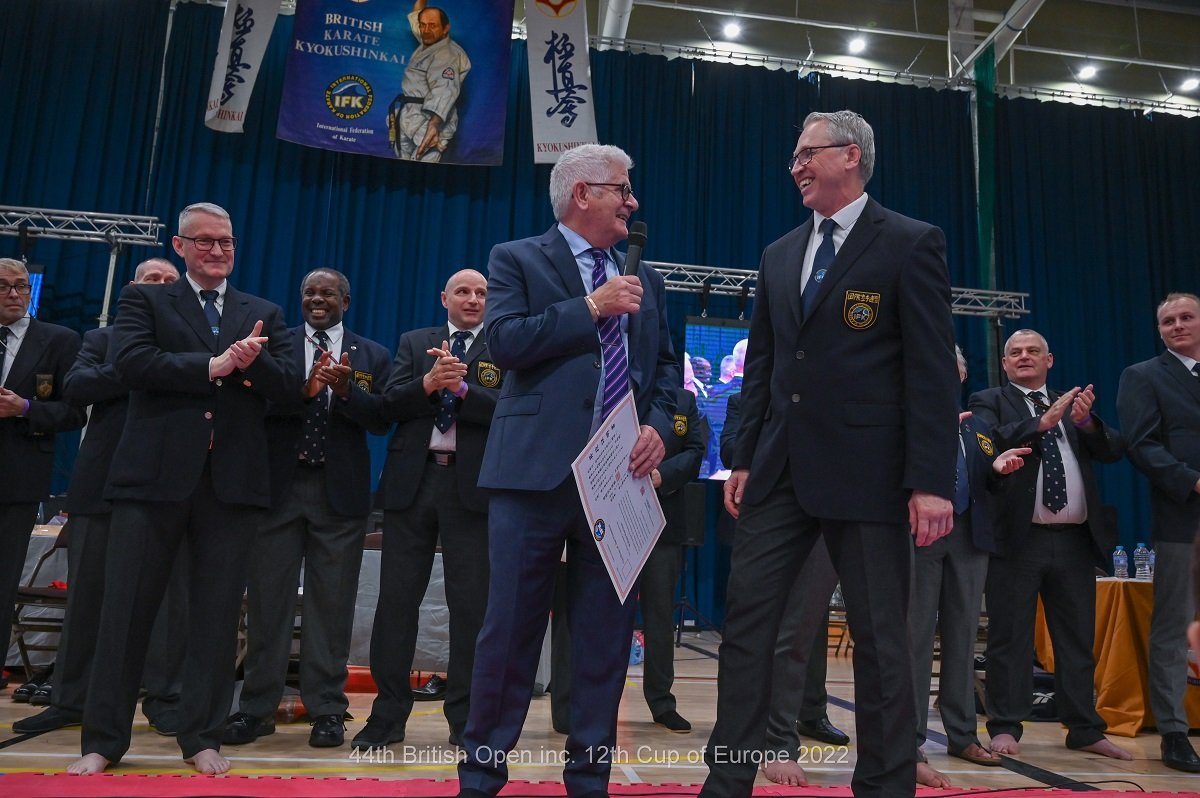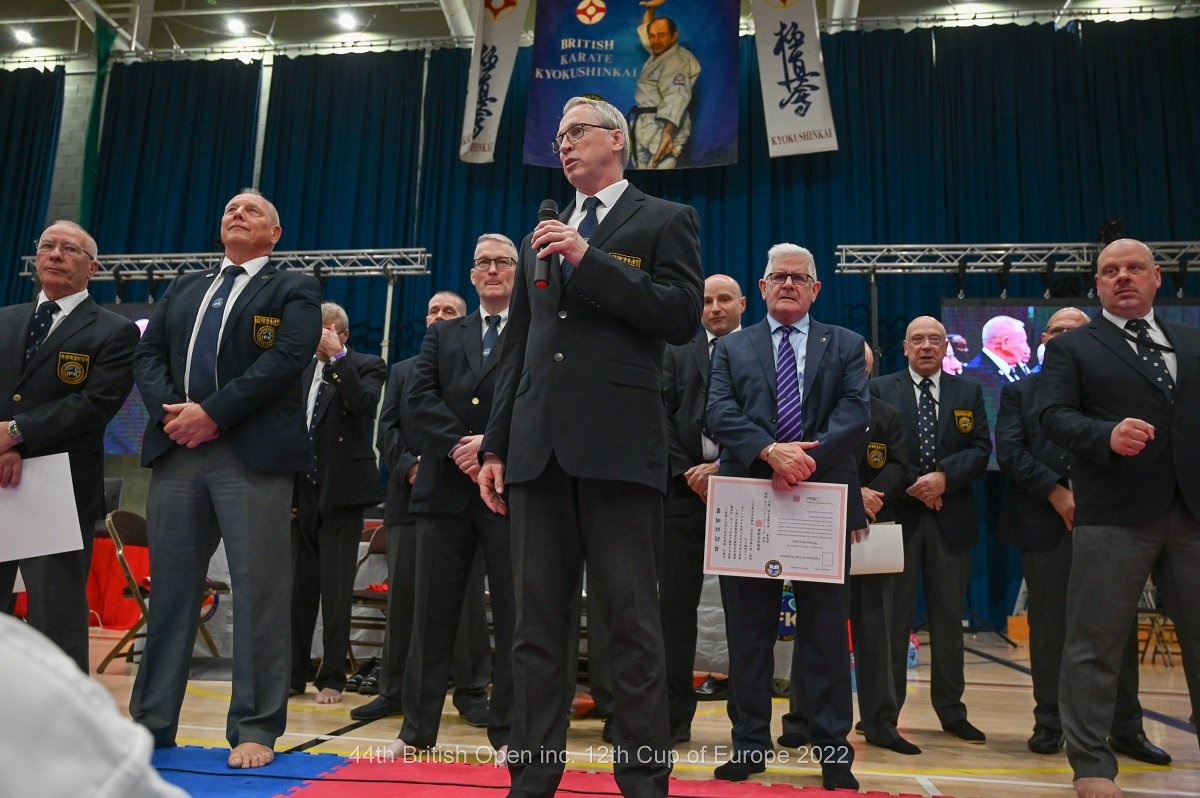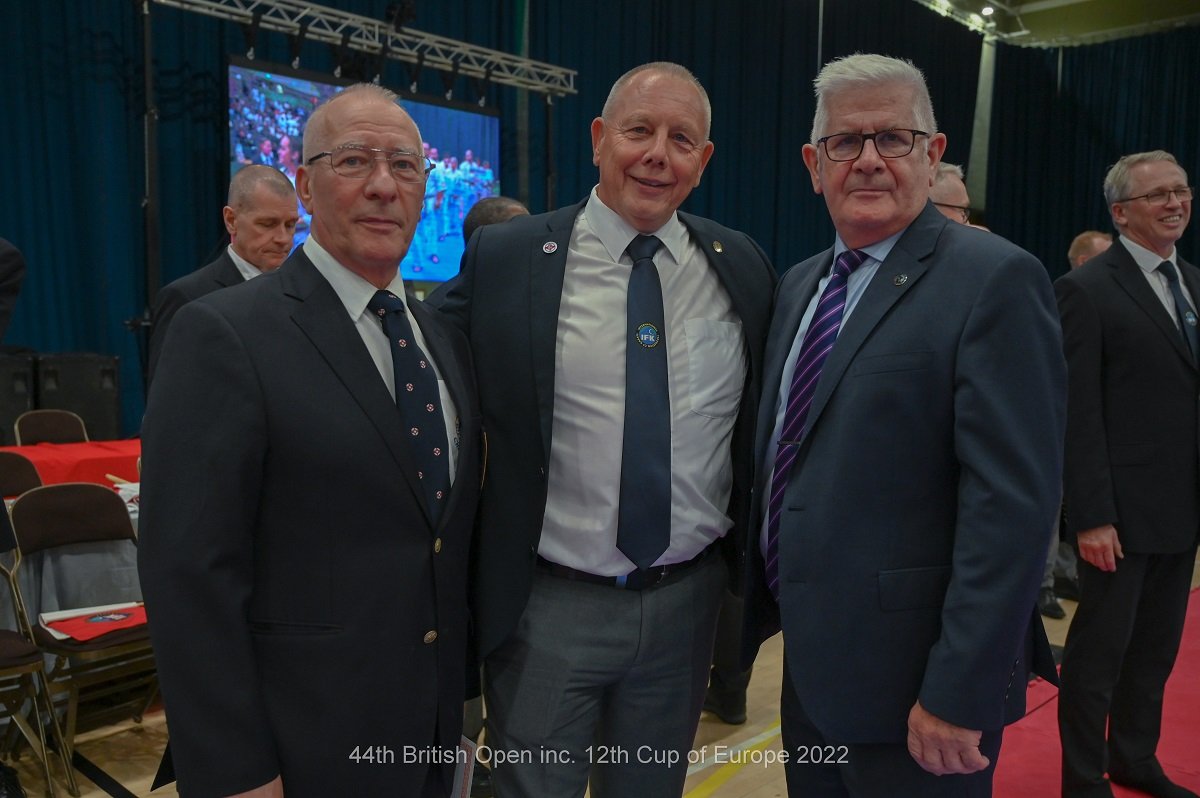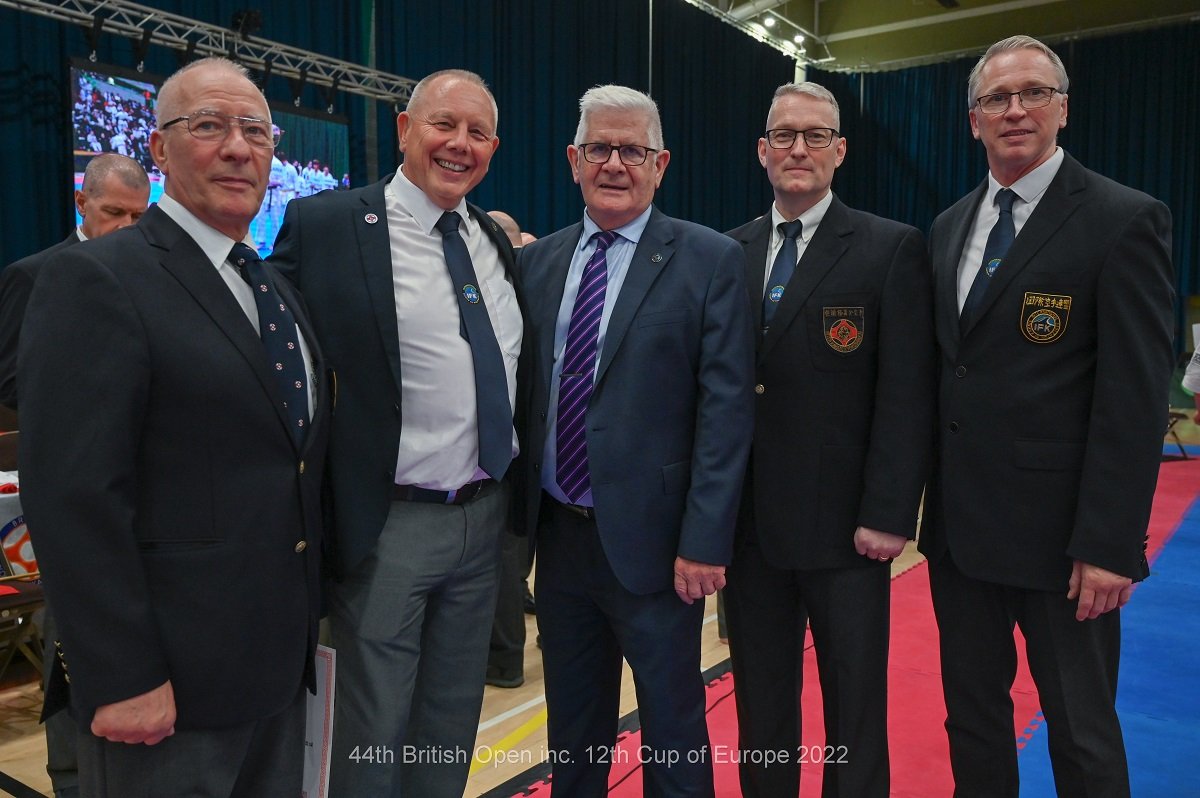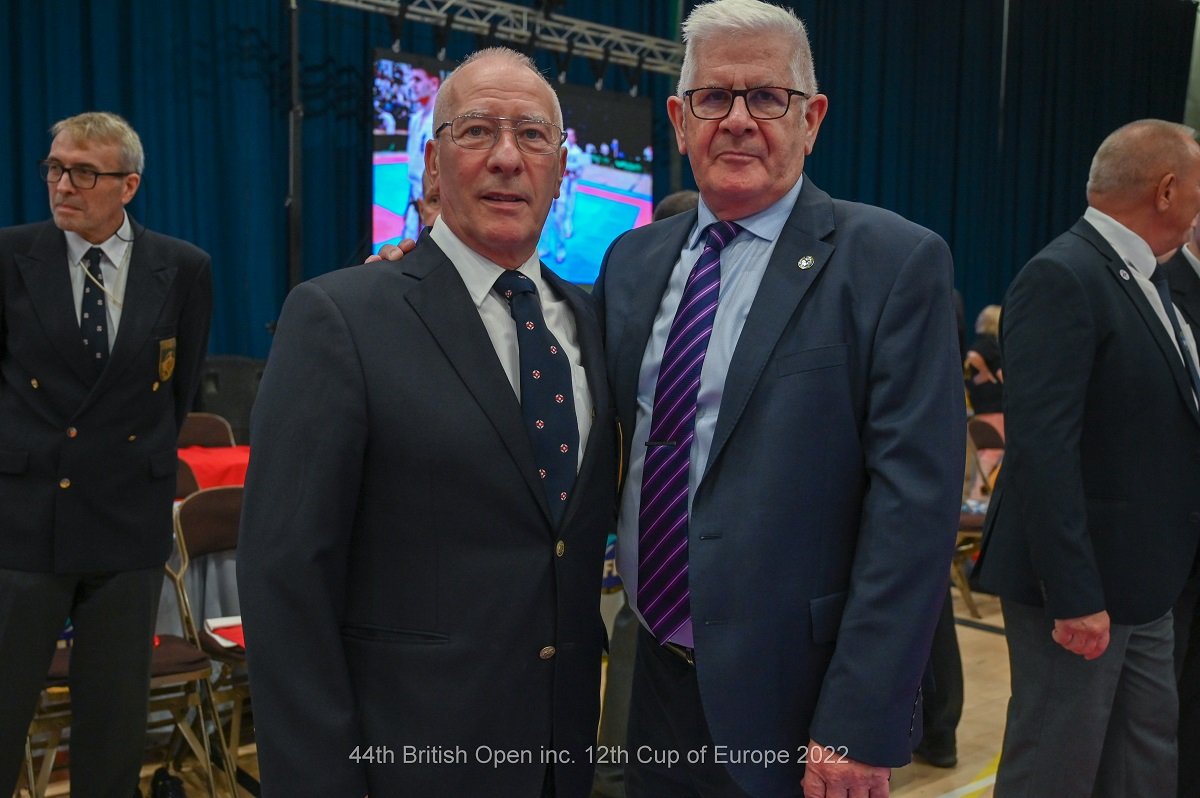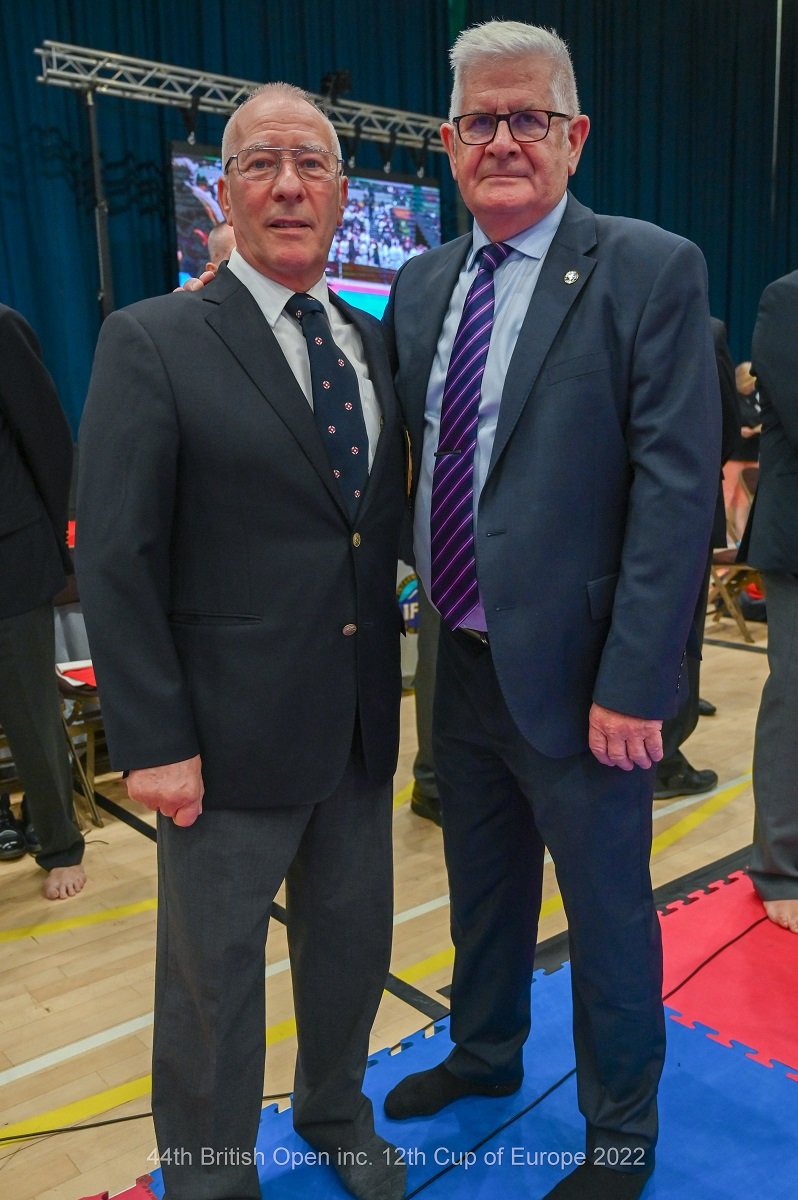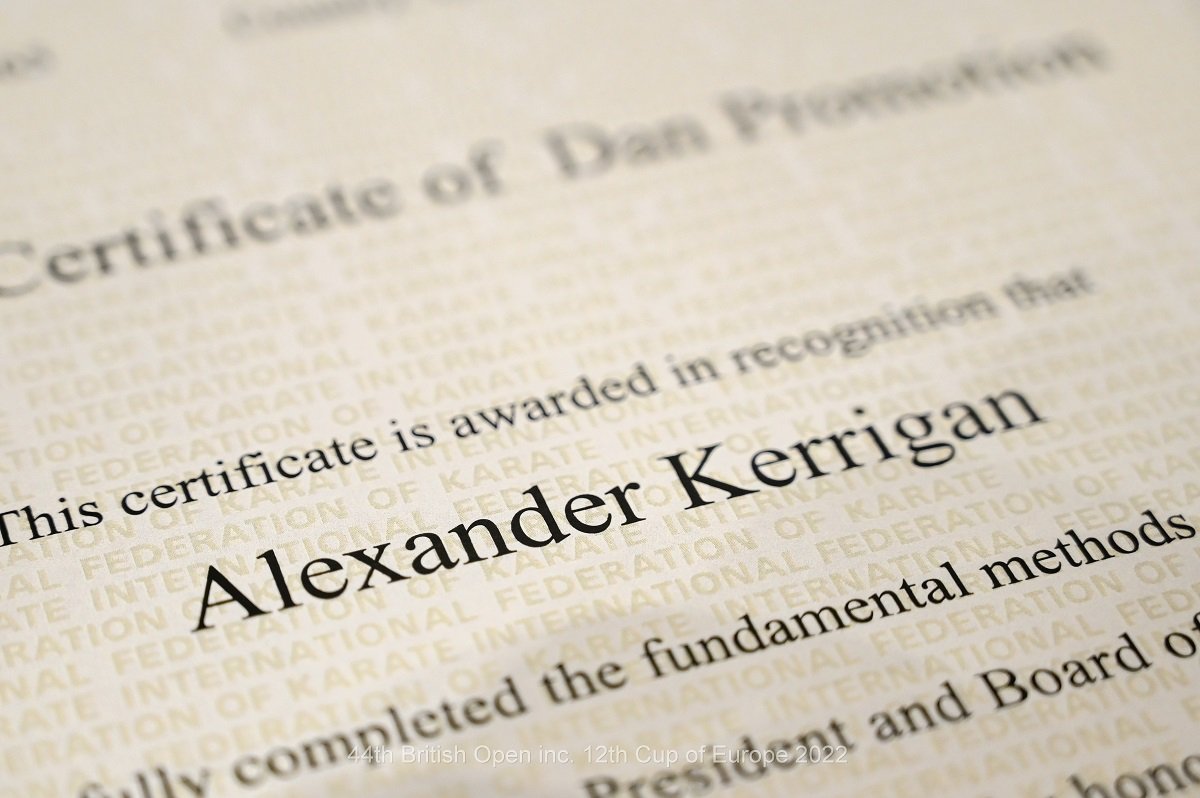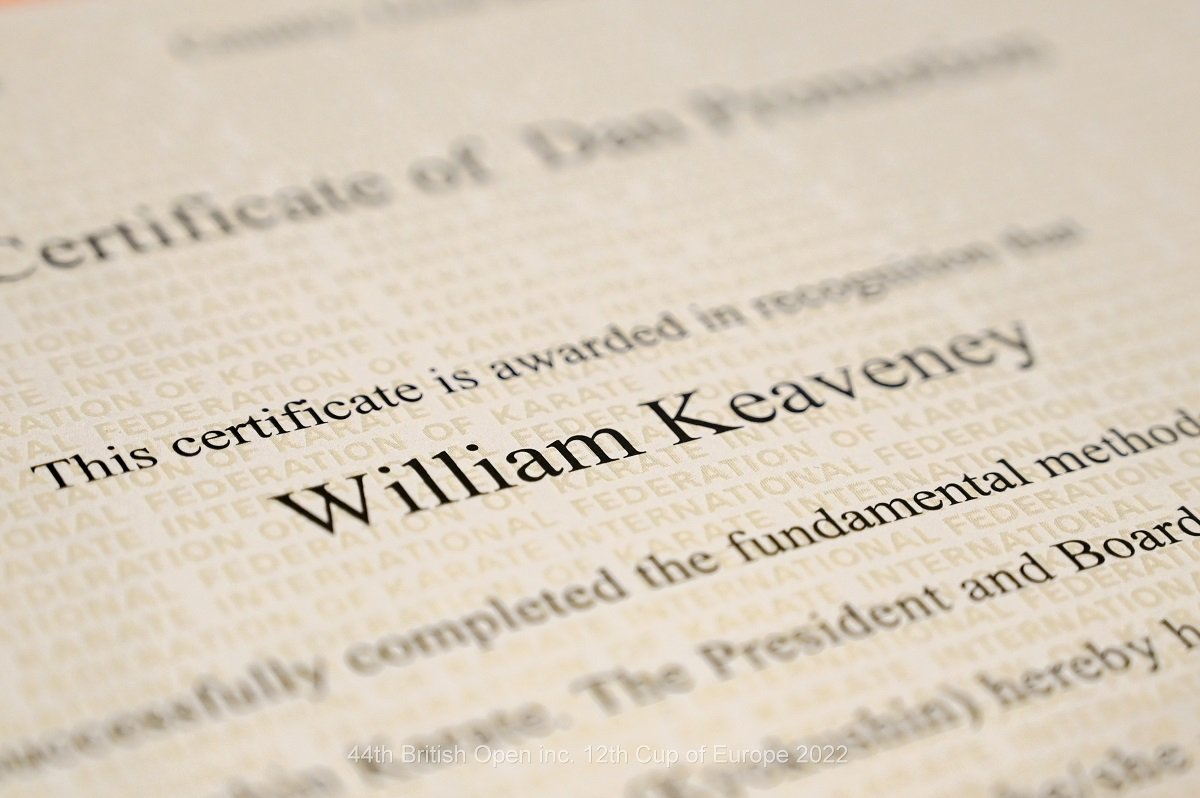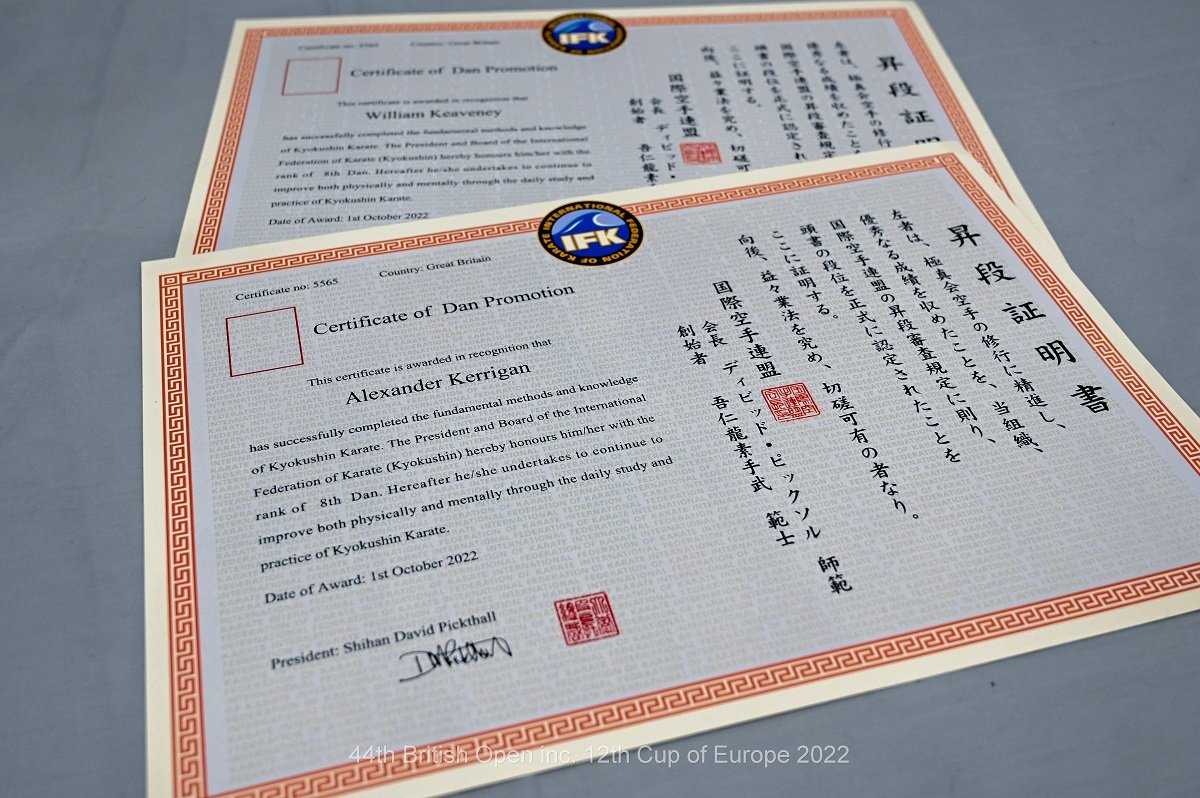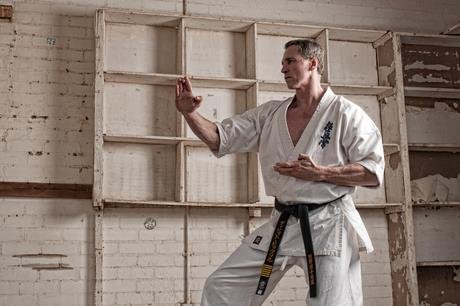Q: You run your own dojo at Crawley can you tell us a little of the history and your students?
Shihan David Pickthall: In the late ’60s John Jenkins was doing karate in Crawley and he linked up with Peter James. They spoke to Hanshi and the dojo became part of the BKK in 1969. Sensei Ray Pearson was part of the first demonstration in the town and he still regularly visits our dojo.
In the ’70s there was some tough karateka going through the dojo. Steven Jones was one of the most talented students the BKK would ever have seen and rivaled Jeff Whybrow at the time. Unfortunately for the BKK Steven relocated to Sweden in the late ’70s and is still a Shihan in the WKO Shinkyokushin Organisation.
I have been teaching at the dojo for Hanshi since I was 21, but it was only in August 2008 that Sensei Neil Madeley and I took ownership of the dojo. We try to make it a true club atmosphere with input from several other students and parents. We have had many top competitors at the dojo in all aspects of the style and I think most people who come to Crawley will agree the training is based on being a good all-rounder. In truth the top students or elite is not the lifeline of a dojo: It’s the normal students keeping the sessions alive that give competitors a base to train.
If your dojo is only for the top students it won’t last long. It’s important to encourage the students that find it more physically difficult or are more time-poor. You need everyone to feel like part of the club and organisation. You never know – they might end up being the next star.
As well as my own students I devote a lot of time to coaching competitors from different dojos. It’s not important that they are registered to another club, the main point is that they are committed to learning and they want to grow as a competitor.
Q: You were the BKK Kata Coach and then transitioned straight into the role of BKK Knockdown coach and had quite a lot of success. To what do you attribute this?
Shihan David Pickthall: Well, success is relevant to commitment. I was lucky enough to have a large number of students who dedicated themselves to trying and achieving their goals. My role was to help them reach their targets whether it was a national or international level.
I normally tried to take a few less experienced fighters with some of the mainstays - that way they get to see how to handle the pressures.
I always welcomed the challenge of competing in non-IFK events as it is important to test yourself against all Kyokushin groups. Politics should not enter the fighting arena.
I was also always interested in the evolution of fighting styles throughout the eras, and I am surprised that so many coaches always go back to how they did it in their day. We are past that. We had our time and whilst I wouldn’t swap it for the world, you must look at what is current and find ways to beat that style.
Q: You are seen as an all-rounder in Karate terms especially when it comes to competing. Do you think that perhaps now we place a greater emphasis on the competition now to the detriment of other aspects of karate?
Shihan David Pickthall: I have said this before but actually, I don’t. If you look at the top competitors, they are doing 5 or 6 sessions a week and adding all the extra preparation needed. If a student wants to learn more it is down to them to be like the fighter and to put in the extra hours.
I would have sympathy for a student if their attendance was 100% and they never get to train the areas they wish. But let’s face it, for many the commitment is not as great these days. I know lifestyle pressures can dictate that, but that is the fault of neither the instructor nor the organisation.
We say we are a Budo art and if that is the case then it is up to the karateka to seek out the knowledge they are looking for, whether that be in kihon, kata, or kumite.
I also disagree with instructors that preach about knockdown not being an important part of our art. If you look properly at our history it was Sosai that started knockdown tournaments. He made rule changes, removing grabbing and throwing from events after the 1979 World Championships, and he dreamed that one day we would be an Olympic sport.
He also never said you should forget the skills of our traditional martial art, but the biggest evolution of our art/sport was during his lifetime.
Since then, there have been minor modifications to the competition ruleset, but in my view, that is more to distinguish different federations.
